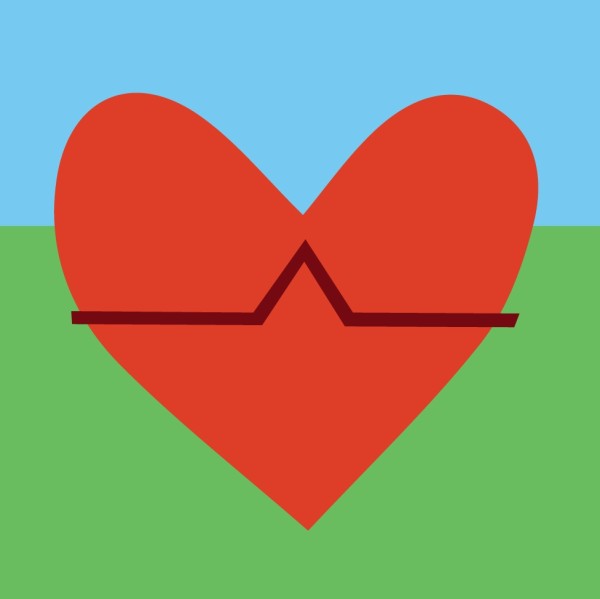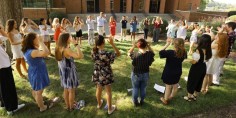Dr. Kenneth Dodge, the Center’s founding and past director, explains more in the Q & A below. Dr. Dodge is the William McDougall Professor of Public Policy and Professor of Psychology and Neuroscience at Duke University.
Q. How was this list developed?
A. Nine faculty experts in early childhood developed the list of shared outcomes, while others served as formal and informal advisers. We created a guiding set of principles, focusing on the prenatal period through age 8. We also wanted to focus on environmental and parenting influences on a child. From there, we looked at the markers that indicate good, healthy development.
Q. Let’s look more closely at the three domains. Will you explain them to us?
A. There’s physical development: height, weight, health, health care. There’s cognitive development: word knowledge, number knowledge, phonics. And there’s social-emotional development: self-control, friendships, social skills.
Health is probably the domain where we have the strongest history of charting development. When my children were young, the pediatrician would pull out her chart and say, ‘You were at the 25th percentile in height and weight last year, and here you are again, but you’re continuing to grow and develop.’ It was very clear and helpful. We don’t have anything quite like that in cognitive or social emotional development.
That’s part of what we want to figure out. In cognitive development, what does healthy functioning look like at age 3? What’s normative and how much latitude is there? The idea is to develop that thinking and then drill down to get specific indicators for measurement.
Measuring social-emotional development is complicated because it is measured while interacting with other people. Can you wait your turn in line? Can you calm yourself when someone makes you angry?
Q. How fast is research in this field progressing?
A. Fast. We are learning how to measure some of these ideas and constructs in different ways through observation, tests, interviews, and even biomarkers. We can measure stress responses as a measure of social-emotional development. We can observe how quickly a child calms after being upset, but also measure hormones, stress levels and heart rate. It’s an exciting time to be in the field.
Q. We describe this list of outcomes as reflecting our “whole child” approach. What does “whole child” mean?
A. Let’s think about kindergarten readiness and back up from there. You might ask, ‘What is it going to take at age 3, age 2, or age 1 to be on a trajectory to enter kindergarten ready to learn?’ You have to think about nutrition, for example, and physical development. For cognitive development, we want to measure the number of words a child knows and how well a child can solve number problems. Then there’s social-emotional development — getting along with peers, being able to self-regulate.
Each of these three domains affects the other. It’s hard to develop a cognitively and social-emotionally healthy child if that child does not also have good nutrition, for example, and vice versa.
Q. How do we know that these outcomes are strong predictors of later success?
A. A strong body of research shows that if a child is not reading by the end of third grade or not performing well on standardized achievement tests, that child has a high probability of not graduating from high school. The same body of research shows that a child who lacks social competence has an even higher probability of not being employed, not being self-sufficient, not having a successful marriage. Other research shows that kindergarten readiness predicts third grade outcomes. And now we’re finding that how a family is functioning at a child’s birth is going to predict kindergarten readiness.
Piecing those segments together affirms the idea of continuity in development when it comes to longer-term outcomes.
Q. Can we change the trajectory?
A. We believe we can, although the window of opportunity begins to close as a child gets older. That’s where the focus on early life, the period from birth to age 8, comes in. A trajectory may be set in motion, but it can also be deflected by life experiences. That hope is what motivates us.










